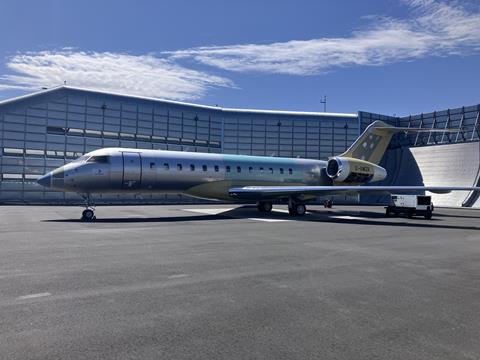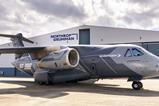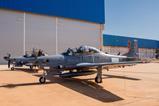Government auditors in Washington, DC have upheld the US Army’s choice of a vendor for a nearly $1 billion programme to develop and build a new fleet of intelligence collection aircraft.
Known as the High Accuracy Detection and Exploitation System, or Hades, the so-called “deep-sensing” platform is intended to provide an affordable long-range intelligence collection capability using modified Bombardier Global 6500 business jets.
Army officials have described the programme as the “most-significant” transformation of the service’s fixed-wing aerial reconnaissance fleet in its history. Systems integrator Sierra Nevada won the competitively bid contract in August 2024, edging out rival L3Harris.
The service plans to acquire up to 14 Hades jets, with three of the foundational Global 6500s already under contract with Bombardier.

Original awardee Sierra Nevada was confirmed winner of the Hades contract on 23 December, when the US Government Accountability Office (GAO) denied an appeal of the army’s selection by rival L3Harris. Additional details on the GAO decision are not immediately available, with the agency citing a security review of the classified programme.

“This protest is covered by a protective order, which means that some information in the decision may require redaction before public release,” the GAO says, noting a redacted version of the verdict will be made public at a later date.
The full ruling has been made available to the two competitors, as L3Harris confirms to FlightGlobal it is reviewing the decision to determine its next action.
“We remain confident L3Harris offers the lowest-risk and most-capable solution as demonstrated through more than 600 sorties and 6,000 flight hours on the US Army’s Ares and Athena programmes,” the company says.
Ares and Athena are precursor efforts to Hades, based also on modified Global 6500 business jets to provide deep sensing reconnaissance and intelligence collection.
L3Harris is the prime contractor for Ares, which is already operating in the Indo-Pacific region with a suite of sensors that can spot ground targets for so-called long-range precision fires, such as artillery and ballistic missiles. The company is also under contract for the Athena-R programme, another contractor-owned and -operated radar-surveillance jet.
L3Harris says it has already delivered an initial version of that aircraft to the army for operational testing.
Sierra Nevada was selected to develop the related Athena-S jet, designed to collect signals intelligence with advanced eavesdropping sensors capable of intercepting communications. The first Athena-S prototype completed its first flight last November.
While the earlier Greek-deity-themed aircraft will be owned and operated by private contractors, the Hades fleet will follow the more-traditional model, being owned by the government and flown by uniformed officers.
The army says it will use the precursor contractor-operated aircraft to assess how to best employ its new business-jet-based intelligence aircraft.































